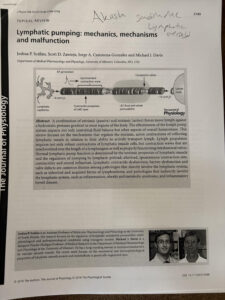Week 1 : Working past some issues
Akash K -

Hi everyone, I am AK! This is my blog post for the first week:
Currently, I am doing my project on Alzheimer’s disease at the University of Arizona Pires Lab. The commonly accepted theory is that the disease is caused by protein buildup in the brain. This buildup prevents functioning and restricts thinking, leading to a major disruption in the daily lives of affected individuals. It is the most common neurodegenerative (slowly degrading of brain function) and affects about 10% of the elderly (65+), getting higher as age increases. I am interested because many of my family members have been affected by the disease and it is fascinating to me that there is no cure for Alzheimer’s disease currently, only ones that reduce the strain of the disease, however, labs like the Pires lab are actively trying to find a cure. At the lab, experimental treatments on mice models are used to see how they react to the disease. Typically, multiple mice brains are used and compared to control models and then put through a process of analysis. This analysis helps to deduce whether the treatment is effective and is critical to see if the treatment is worth pursuing.
I was originally supposed to work on some experiments with mice brain slices under a microscope using the “PNA5” experimental drug. However, it was discontinued due to a lack of successful results. My mentor and I decided to change the project, aiming more towards protein identification and we are currently working towards beginning my first analyses. The first stage is to research a topic closely related to the disease- Lymphatics- by reading academic papers. The paper I have been focusing on is Lymphatic pumping: mechanics, mechanisms and malfunction (Scallan et al. 2016). The paper goes into detail about the different lymphatic system functions – the system that prevents infections and maintains fluid balances present in almost every organ in the body-, many associated body systems, and even diseases associated with defects in the lymphatic system such as. After some discussion, I was able to determine the important details, especially focusing on the lymphatic system’s purpose as a waste management system. In the foreseeable future, I should begin using the mass spectrometer device -which shows all the proteins present in a sample based on weight- and then try to find some unknown proteins!

Comments:
All viewpoints are welcome but profane, threatening, disrespectful, or harassing comments will not be tolerated and are subject to moderation up to, and including, full deletion.